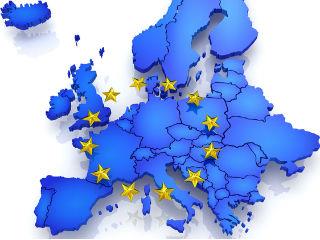by Giles Merritt*
In the US, it’s in the highly disruptive form of Donald Trump’s executive orders. Elsewhere, notably in France, Germany and the UK, the accent is on reforming outdated rules and policies.
The outlier is the EU. In a 21st century that’s undergoing tectonic geopolitical upheaval, the European Union’s structure, organisation and culture have resisted all but minor changes. In all three areas, the EU remains essentially the same as the EEC trade bloc of six countries launched in 1957.
Successive enlargements and treaties have undeniably transformed it into today’s far larger, more muscular and increasingly political entity. But ever since the failure almost 25 years ago of efforts to bind its members into a shared EU constitution, Europeans have ducked treaty changes that could equip them for the rigours they face. Domestic pressures have outweighed commitments to ‘an ever-closer union’.
New treaties aren’t the only way the EU could streamline and update itself. Important reforms could be introduced quite easily without risking the frictions and delays that negotiating treaty change would entail. All that’s needed is for the EU’s institutions – the Commission, Parliament and Council – to agree on a detailed agenda of fairly minor reforms.
Former top-level EU officials and respected outside policy analysts have recently come up with extensive reform proposals. In a joint exercise by the Trans-European Policy Studies Association, an academic network, and Belgium’s Egmont Institute, some 30 experts identified changes that would modernise working practices and resolve deep-seated weaknesses.[1]
Former EU insiders cons
Pulling no punches, some of them preface their suggestions with tough analyses of where the EU stands in key areas. “The EU’s communication, transparency, news and information system is totally ineffective,” says one. Another, referring to foreign and security policy, complains that policymaking “is unduly constrained by a confusing and contested institutional structure.” On financial questions, one expert remarks: “The impact of EU spending is disappointing; outdated priorities, inflexibility in response to new demands, and excessive bureaucracy.”
Looking at the EU overall, a prominent former official says: “The crises that have confronted the EU over the last 15 years should not be seen as accidental, but rather as the outward signs of a loss of power and control in a changing global order […] Europe needs clearly defined outcomes, not just targets.”
Some of the changes being urged target the inner workings of the EU’s civil service, and particularly privileges that are jealously guarded by in-house unions. Former EU insiders consider many eurocrats to be overpaid for low responsibility jobs, and remark that, meanwhile, starting salaries are too low to attract badly needed specialist skills. A radical overhaul of hiring methods is called for, and at the same time, the accent is put on far better coordination of different arms of the EU institutions.
Europe’s continuing inability ‘to speak with one voice’ is the focus of several former EU officials and diplomats. “Should it not be possible to merge the EEAS with the Commission?” asks one, referring to the EU’s much-criticised diplomatic service. The consensus among them is that a clearer EEAS mandate and a more professional internal culture should be priorities.
Public perceptions of the EU are also highlighted as a major problem area. “Europe’s weak public sphere is a key obstacle to improving the EU’s democratic governance,” observes one contributor to the report. Another comment of the Commission: “Communication that appears muzzled becomes less credible.”
The theme running through these observations is that improvements to the EU’s governance are needed to compensate for the absence of new treaties. “Governance is often overlooked,” remarks a former Secretary-General of one EU body, “yet the successful implementation of policies depends on appropriate governance structures.”
“A way forward,” writes a similarly senior ex-eurocrat, “would be to create a task force of secretaries-general of the institutions and member states with up to two years to produce a blueprint for re-designed EU governance. This should be taken up by the presidents of the institutions before going to the European Council.”
The challenge, writ large, is that of ‘physician, heal thyself.’ The EU’s institutions are geared to addressing the shortcomings of others and disputes elsewhere, but are often blind to their own weaknesses. It would be good to hear their presidents’ views on what the way forward might be.
*Founder of Friends of Europe
**first published in friendsofeurope.org




 By: N. Peter Kramer
By: N. Peter Kramer

